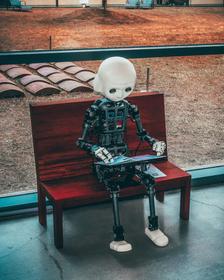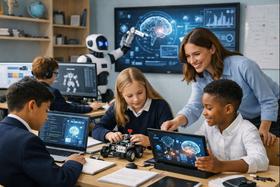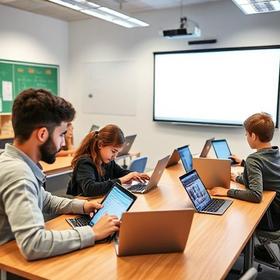How Private Schools Are Setting Up AI & Technology Competency in Students: Not Just Tools, But Skills
In 2025, the conversation in private education has shifted—from simply giving students access to new tools, to equipping them with deeper technology and AI competency. Schools are recognising that knowing how to use AI tools is no longer sufficient: students need understanding, ethics, thinking skills and adaptability. Below we examine how private schools are defining and building technology competency, with fresh examples, frameworks, and commentary from experts.
What Is Technology & AI Competency?
AI competency involves more than being able to operate software or digital tools. It typically includes:
AI literacy and understanding (what AI is, how it works, where it succeeds or fails)
Ethical awareness (bias, privacy, responsible use)
Critical thinking & evaluation of AI outputs
Prompt-engineering or interaction with generative tools
Adaptation & lifelong learning — ability to learn new tools or adapt as technologies change
Soft skills — collaboration, creativity, resilience, communication, problem-solving in a tech context
Schools that push for technology competency aim to balance use of tools with skills about the tools.
Why Private Schools Are Leading (or Pioneering) This Shift
Private schools often have more flexibility in curriculum design, smaller class sizes, and resources to adopt new models more quickly. Some reasons they are ahead in setting up full AI/tech competency frameworks:
Ability to pilot innovative curricula without as many regulatory constraints
More investment per student enabling tech-training for staff + infrastructure
Greater parent demand for future-ready skills
Competitive differentiation: showing that students graduate not just knowing tools but able to think about, build with, and critique them
Current Developments & Examples (2025)
Here are up-to-date instances showing how private schools are setting up AI competency beyond just giving students tools.
| Institution / Initiative | What It Does Differently / Special | Skills Emphasized |
|---|---|---|
| Alpha Schools (USA) | Private AI-powered microschool model. Students spend about two hours a day on core academics via adaptive AI modules (“AI tutors”), then the rest of the day on life skills, workshops, mentorship, and projects. “Guides” rather than traditional teachers serve more as mentors. (The Hunt Institute) | Self-paced learning, responsibility, adaptability, project-based collaboration, real-world skills beyond academics. |
| Franklin Road Academy | Earned the Responsible AI in Learning (RAIL) endorsement in 2025. This indicates leadership in AI literacy, ethics, institutional readiness. (Wikipedia) | Ethics, safety, policy awareness, critical thinking about AI. |
| Estonia’s AI Leap | A national initiative (though includes private and public sectors) to provide high school students aged 16-17—and teachers—with free AI tools and training; emphasises critical thinking and awareness. (Financial Times) | AI literacy, teacher preparedness, awareness of societal impact. |
| “Day of AI” Curriculum | Free curriculum resources for K-12 that builds AI literacy progressively (ages 5-7 and above) using a spiral curriculum model. Students revisit AI concepts with increasing complexity. (Day of AI) | Foundational understanding, ethics, algorithmic thinking, applications. |
These examples demonstrate a trend: private schools are embedding durable competencies rather than treating technology & AI as add-ons.
How Schools Are Structuring AI / Tech Competency Programs
Here are models and strategies private schools are using so students gain broadly applicable competency:
Adaptive and personalized learning platforms
AI tools that adjust difficulty, give feedback in real-time, track progress and gaps. These free teachers to focus more on mentoring and higher-order skills. (Seen in schools like Alpha)Project-based learning & experiential modules
After using tools for core subjects, students engage in workshops, mentoring, real-world projects (e.g. entrepreneurship, coding projects, community service) to apply skills.Ethics, AI safety, bias, privacy integrated in curricula
Schools are teaching not just “how to use” AI but “what to watch out for,” including misinformation, bias, privacy issues. Curricula / frameworks like Day of AI incorporate ethical units.Teacher training and mentorship shifts
Teachers become guides and mentors rather than lecturing experts. Ongoing professional development helps educators keep up with AI developments.Flexible scheduling & reallocation of time
Reducing hours spent on traditional whole-class lecture time, using tech for core academic content, freeing time for other competencies. Eg: two hours core academics with AI, rest for life skills/workshops.
Challenges & Critical Questions
While many private schools are making progress, there are real challenges:
Equity & access: Not all families or schools can afford high-cost AI tools, infrastructure, or teacher training.
Quality & verifiability of AI outputs: Ensuring AI tools are accurate, up-to-date, fair and transparent.
Academic integrity & misuse: How do we prevent over-reliance on AI (e.g., for writing essays, problem solving) without understanding?
Balance: What’s the right mix of tool-use vs understanding vs human mentorship?
Regulation & oversight: Ensuring ethical standards, privacy laws, data security are observed.
Expert Perspectives
Educators and technology specialists emphasize that AI literacy must include understanding its limitations, biases, and societal impacts. As one recent study noted, skills such as bias awareness, ethical AI practices, and critical thinking in evaluating AI output are among the most critical.
Others argue that soft skills—communication, collaboration, adaptability—will distinguish students who can succeed in an AI-augmented world. Tools can teach content, but interpretation, creativity, empathy must still come from humans.
Policy analysts caution against “AI hype” models that promise radical outcomes without sufficient evidence or teacher involvement. Robust data and longitudinal studies are still limited.
What Parents, Students & Educators Should Look For
If you’re deciding between private schools, or helping one design/assess its program, here are useful criteria to assess whether it truly builds technology and AI competency:
| Criteria | Questions to Ask | Why It Matters |
|---|---|---|
| Curriculum includes AI literacy & ethics | Are there courses or modules on how AI works, its limitations, bias, privacy? | Ensures students understand, not just use, technology. |
| Use of adaptive tools + human mentoring | How much of learning is AI-driven vs teacher/guides/mentors? | Balance ensures tools augment, not replace, mentoring. |
| Skills beyond tech | Are students learning collaboration, creativity, problem solving, decision making in tech contexts? | These “durable skills” are needed in workplaces and life. |
| Teacher preparedness | Do educators receive training? Are they comfortable guiding rather than lecturing? | Without teacher capacity, tech adoption may be shallow or risky. |
| Evidence of outcomes | Are there assessments, certifications (like RAIL), published data on student performance or skill gains? | Helps distinguish models backed by evidence from experimental ones. |
Implications & Trends Going Forward
More schools will seek external certifications or frameworks (like RAIL) to signal responsible AI implementation.
Curriculum guidelines will become more standardized globally for AI literacy (UNESCO, OECD, etc.), allowing comparisons.
Hybrid models combining tool-use, project work, mentor guides will become more common.
Affordability will be a major tension: cost of high-quality adaptive tools, teacher training, infrastructure. Private schools will often lead; public schools may lag without investment.
Continuous iteration: As AI itself evolves (new generative models, etc.), schools will need to update curricula, ethics teaching, and teacher skills.
Conclusion
Private schools in 2025 are moving beyond teaching students how to use AI tools to ensuring students understand what AI is, how to question it, how to apply it ethically, and how to adapt. Technology competency now includes critical thinking, ethics, adaptability, and soft skills. For parents, educators, and policymakers, the task is to support schools in building these competencies well—through sound curricula, teacher training, and evidence-based practices.















